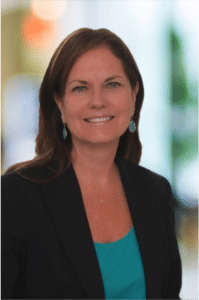Reimagining the Role of the CFO in The New Decade
By Susan Cosgrove, CFO, The Depository Trust and Clearing Corporation (DTCC)
As we start this new decade, chief financial officers are primed to take on expanded strategic responsibilities as Boards of Directors and senior leaders look to them to help lead the business forward. CFOs have the opportunity to grow our influence by helping to define the future vision of our organizations – and central to this is our ability to become champions of innovation.
For some CFOs, this role can feel at odds with our traditional mandate as financial stewards. That’s not surprising because innovation is difficult to define or quantify in financial terms and often unmoored from certain financial return. As we’ve seen over the past few years, the innovation dynamic can change rapidly and unexpectedly – for better and worse.
But at a time when companies are focused on remaining competitive and relevant in a hyper-dynamic marketplace, I believe CFOs actually are in the strongest position to help our organizations find that vital balance between innovation and safe financial decision-making. No other executive has the unique enterprise-wide view that we have. Based on my experience, these are the three key themes we need to follow to be successful.
CFOs Are Leaders of Innovation
A long-time and mostly unfair perception exists that CFOs are unmoving gatekeepers of experimentation and roadblocks to new ideas. This couldn’t be further from the truth, although there are times we do need to say “no.” In most cases, however, CFOs are the lynchpin that supports innovation by connecting investments to outcomes and outcomes to growth and an improved client experience. We may operate in a seemingly black-and-white world of balance sheets, finite resources and budget constraints, but that actually provides the foundation for inspiration and innovation.
Creativity doesn’t stem from unlimited resources, but rather from the resourcefulness of what is available and the ingenuity of employees who serve on the front lines. CFOs evaluate progress and direct funding to the initiatives with the greatest demonstrated potential, using checkpoints and guardrails to make decisions whether to speed up development or fail fast.
While popular culture likes to promote the notion of the “eureka” moment in the innovation process – as if it always occurs spontaneously and independently – the reality is that discovery doesn’t occur or thrive in a vacuum. What truly drives the brightest ideas is an operating model and corporate culture that is proactive and fosters collaboration and constructive engagement among teams. Here, too, CFOs are uniquely placed to help create that environment, using our vantage point at the center of the organization to understand which areas are regularly succeeding and why. Armed with this insight, we can encourage those behaviors more broadly across the entire firm.
Parameters, not rules
As CFOs, our world consists of numbers, data and metrics to execute actions. We are instinctively drawn to trendlines and extrapolating data for forecasting. Usually, we tend to be biased toward the certainty of past successes, using it to inform future decision-making.
But that’s only half the story because very often failures provide valuable lessons. Innovation flourishes through the iterative process of trying, learning, not succeeding and then achieving. CFOs support this by helping to create the appropriate sandbox for experimentation, bordered by KPIs and other cold, hard facts as guardrails, while creativity and freedom build sand castles on inside.
The fundamental goal of every CFO is to ensure the prosperity of their firm by achieving financial growth and avoiding financial disaster. As CFOs, we can tip the scales toward the former by establishing a framework for selecting and prioritizing projects, predicting their respective risk, creating a balanced ‘portfolio of innovation initiatives,’ measuring their performance and assessing their impact on the firm.
Focusing on the Long-Term
CFOs face enormous short-term pressures, but our jobs don’t stop at the end of a quarter or calendar year. Those are merely chapters in a much longer story in the life of an organization. While we need to be ever-mindful of today, CFOs must look beyond the horizon and help enact policies in their organizations’ long-term best interest. For example, we can accelerate or moderate the pace of innovation to correspond to market trends, leveraging data, analytics and other indicators to direct investments that will produce sustainable results over many years.
The ability to see past immediate financial deadlines is crucial for the modern CFO to help innovation thrive at their firms. After all, innovation doesn’t follow schedules. It’s better to take the mindset of experimentation even though it can require patience and longer timelines to see results.
While a CFO’s “day job” may be governed by target dates, it’s our responsibility to look beyond those and track progress, not completion. And most important, we need to be front-and-center in celebrating the successes and learning from the failures to encourage a culture of discovery.
As more is expected of CFOs in the years ahead, having the opportunity to play a bigger role in setting a vision and helping drive long-term success at our firms will complement the role we already play in protecting the financial health of our organizations.
Susan Cosgrove is Managing Director and Chief Financial Officer for The Depository Trust & Clearing Corporation.






